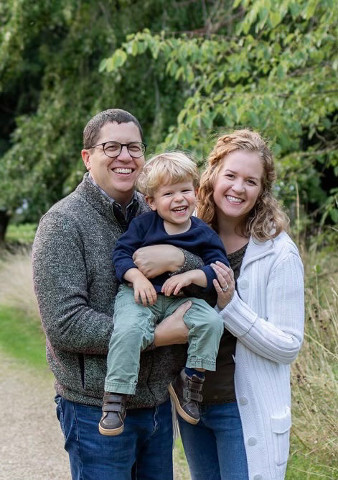
Chip Hardy, professor of Old Testament at Samford University’s Beeson Divinity School, has released a new book, The State of Old Testament Studies: A Survey of Recent Research.
The volume, which Hardy co-edited with M. Daniel Carroll R., looks at new trends in the world of Old Testament research. It’s been about 25 years since a substantive book on the subject was released, Hardy said, referencing The Face of Old Testament Studies.
Instead of just refreshing that volume’s essays, Hardy and Carroll present new fields of study and new topics of discussion, with a goal of serving as a “one-stop shop” for those wanting to know about Old Testament studies.
“There’s always the question of how people are reading the Bible and how scholars are engaged with its study,” Hardy said. “In an active field like Old Testament studies, the discussion today is different from what people were saying just a decade (or more) ago.”
The book is written to be accessible to laypeople as well as those with seminary degrees, Hardy said.
Old Testament studies can be thought of as a house with many rooms, he said, with the book serving as a guide to what’s going on in each of those rooms. It’s been a boon to Hardy’s own vantagepoint, he said.
“I’ve learned so much about what’s going on in each of those rooms,” Hardy said. “It’s nearly impossible for anyone to keep up with the diverse discussions in academia. So, a guidebook like this can be really helpful.”
Hardy divided the book into three parts or “floors,” with 10-12 rooms in each floor. The first floor deals with ancient linguistic and cultural contexts, studying the ways scholars are studying the world of the bible. The second floor engages with textual interpretation and new insights on groups of the canonical books. The final floor deals with interpretive approaches on an array of issues such as Old Testament ethics, gender and sexuality, theological interpretation and Old Testament theology.
“For a lot of readers, this third part is going to be the place where they get a view of the questions many, many scholars are asking today,” Hardy said. “Some of these discussions are brand new.”
Hardy said his hope is for another volume to be written in 20 to 30 years encapsulating future discussions, though older tomes can still be beneficial.
“There’s a place for an archive,” Hardy said. “Even though it might have a flavor of being out of date…we can also hear the recurrents of similar ideas and questions that we keep coming back to the (biblical) text with.”
